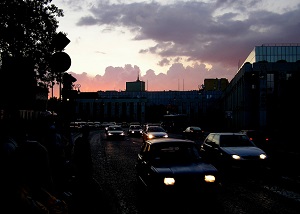
A 2007 study from the National Highway Traffic Safety Administration (NHTSA) compared the rates of fatal traffic accidents between daylight hours and night hours. The results were clear: more traffic accidents occur at night.
The 2007 study revealed higher numbers of nighttime crashes involving occupants who were not wearing their seatbelts. Furthermore, more than half of the fatalities reported included drivers who exceeded the legal limit of blood alcohol concentration. Finally, more than 37 percent of all fatal nighttime crashes reviewed involved speeding vehicles.
Researchers believe nighttime drivers take more risks, which would account for the speeding, low seatbelt use, and drunk driving. These risks may be associated with participation in social drinking events or might be a product of weary drivers rushing to get home.
The other significant factor in nighttime crashes is reduced visibility. No matter what time of year, unless you are driving on a well-lit road you typically only have your headlights to illuminate the road.
The summer solstice (June 21) is the longest day of the year. After that date, our hours of daylight slowly begin to decrease. As we enter the fall and winter months, we approach the shortest day of the year and the period of least daylight. The end of daylight savings time in November also signals the darkness of night will be coming sooner.
First, if you can, avoid driving at night altogether, specifically the hours between 12 a.m. and 2 a.m. when police report that the most crash as a result of driver fatigue occur. Since you cannot control what other drivers do, the defensive moves that you can take are: wearing your seatbelt, driving sober, and maintaining your vehicle.
Here are some other night driving safety tips:
Share this blog with your children. Driving at sunup can be as risky as driving at sundown and new drivers are prone to make mistakes. Teen drivers can easily drive while fatigued, allow themselves to be distracted by friends and technology or forget to wear a safety belt.
There is no excuse for driving drunk or fatigued and causing a car accident. If you suffered an injury in a car crash at any time of day, you might be entitled to compensation for your damages. Contact Goldstein & Bashner at 516-222-4000 to discuss your legal options. Visit our blog and library for more information on your rights after a car accident.